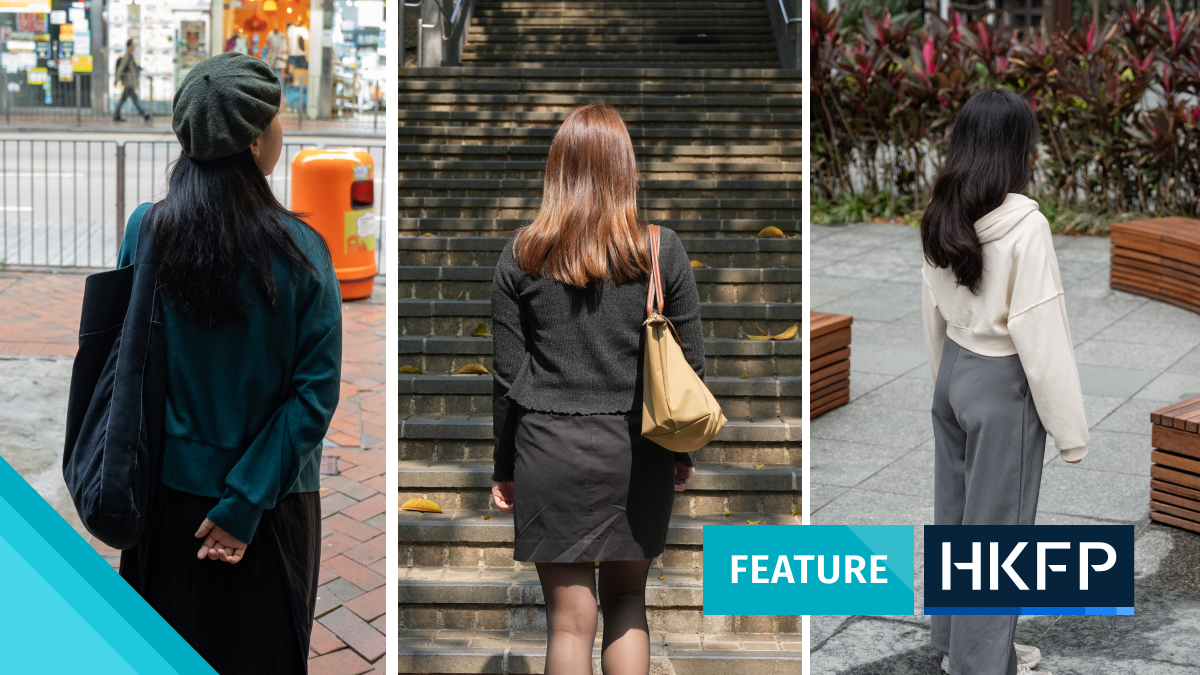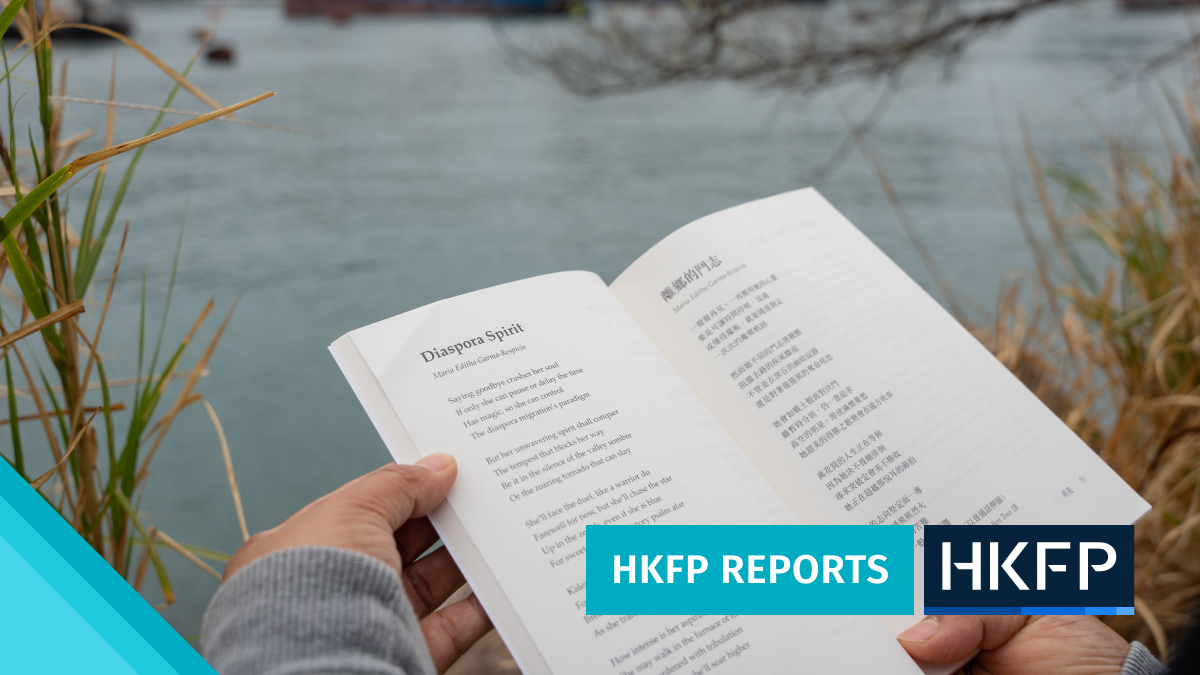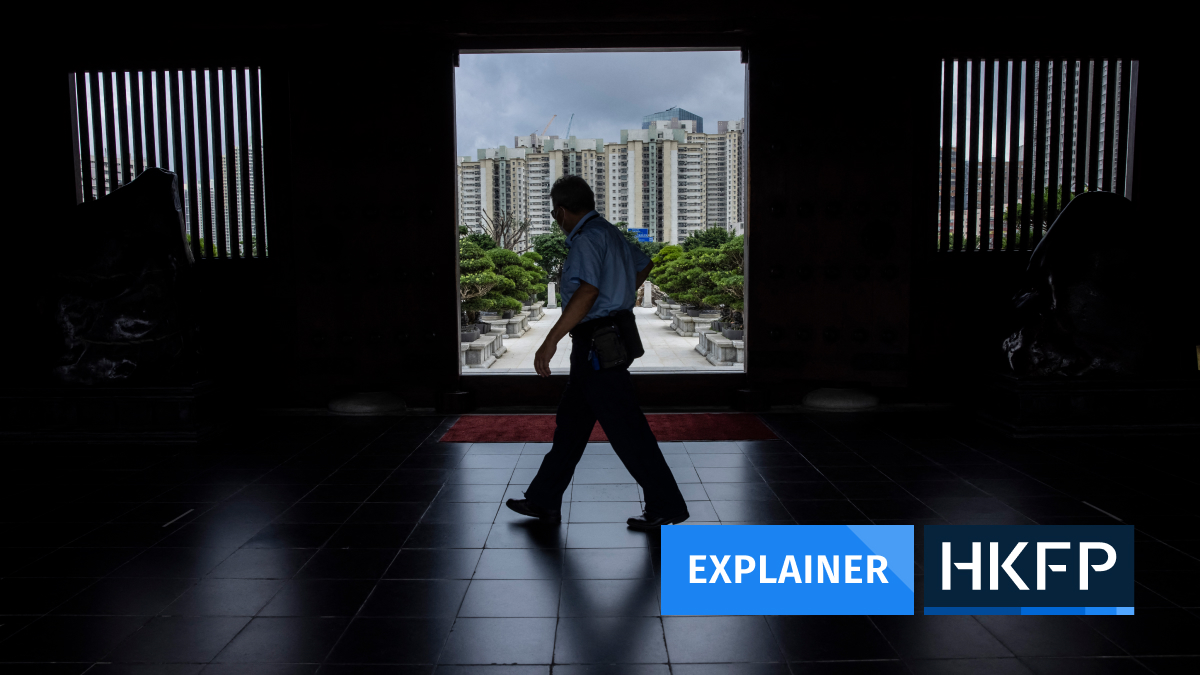A donation at the centre of allegations of misconduct levelled against the president of the University of Hong Kong (HKU) came from a mainland Chinese firm that was later banned from the US supply chain over alleged human rights abuses related to forced Uyghur labour.
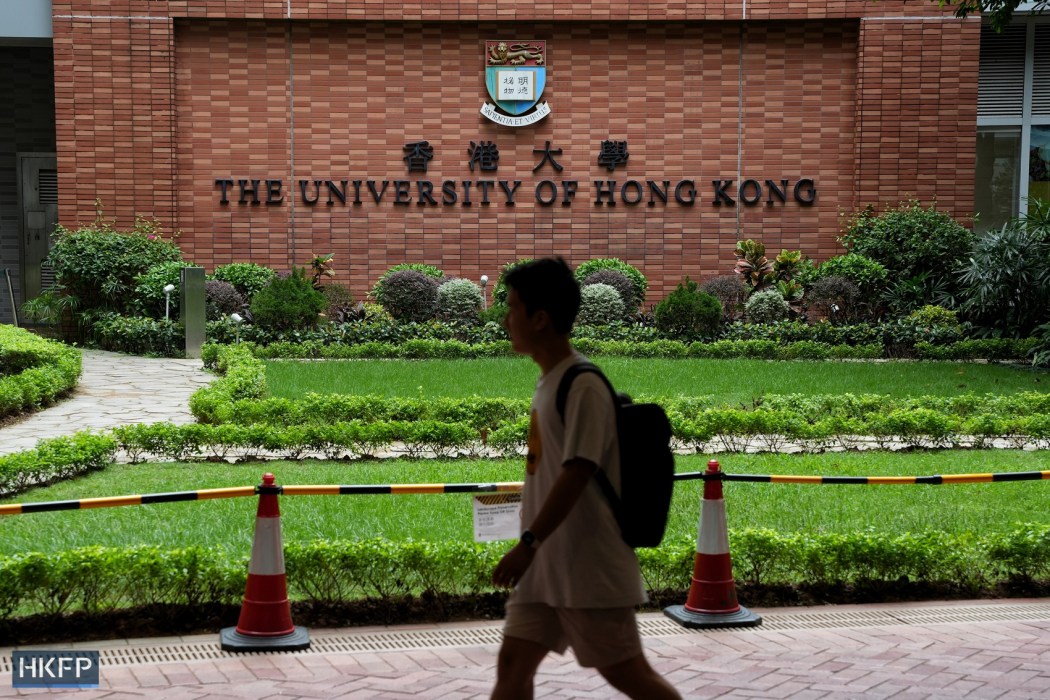
The 10 million yuan (HK$10.8 million) endowment was made by Ninestar Corporation via the Chinese Red Cross Foundation (CRCF), with HKU confirming receipt of an 8.5 million yuan (HK$9.18 million) instalment from the CRCF on April 24, according to emails leaked to the university’s governing body and seen by HKFP.
Laser printer company Ninestar and eight of its Zhuhai-based subsidiaries were added to the Uyghur Forced Labor Prevention Act (UFLPA) Entry List by the US Department of Homeland Security on June 9. Ninestar was included “as a result of [its] participation in business practices that target members of persecuted groups, including Uyghur minorities,” the department said.
The predominantly Muslim Uyghur ethnic group are among the minorities targeted in what Beijing claims is a campaign to tackle unrest and separatism. The UN says a million Uyghurs were arbitrarily detained in “political re-education camps,” whilst Human Rights Watch reports that surveillance and repression in Xinjiang has increased dramatically since 2016. Several western countries have imposed sanctions over Beijing’s actions.

On August 23, Ninestar filed a lawsuit and injunction against the US Department of Homeland Security, calling its inclusion on the UFLPA Entry List “baseless,” and saying it had “caused irreparable financial and reputational damage to Ninestar and its subsidiaries.”
Documents related to the firm’s donation to the institution were sent to all 24 members of HKU Council in late September, along with other complaints accusing the university’s President and Vice-Chancellor Zhang Xiang of mismanagement. Zhang has dismissed the claims as being made by “rumour-mongers,” while the council has convened a panel to investigate the complaints.
Despite repeated emails and calls to its press office, HKU has not responded to HKFP’s enquiries, including those relating to the donation and whether there was precedent for such endowments to be made through a third party, or why such a request was made.
However, a university spokesperson told local media earlier this month that the donation complied with Hong Kong and Chinese law, and that an allegation of money laundering made by the whistle blower was “totally untrue and constitutes a serious defamation of the university, donors and related organisations.”
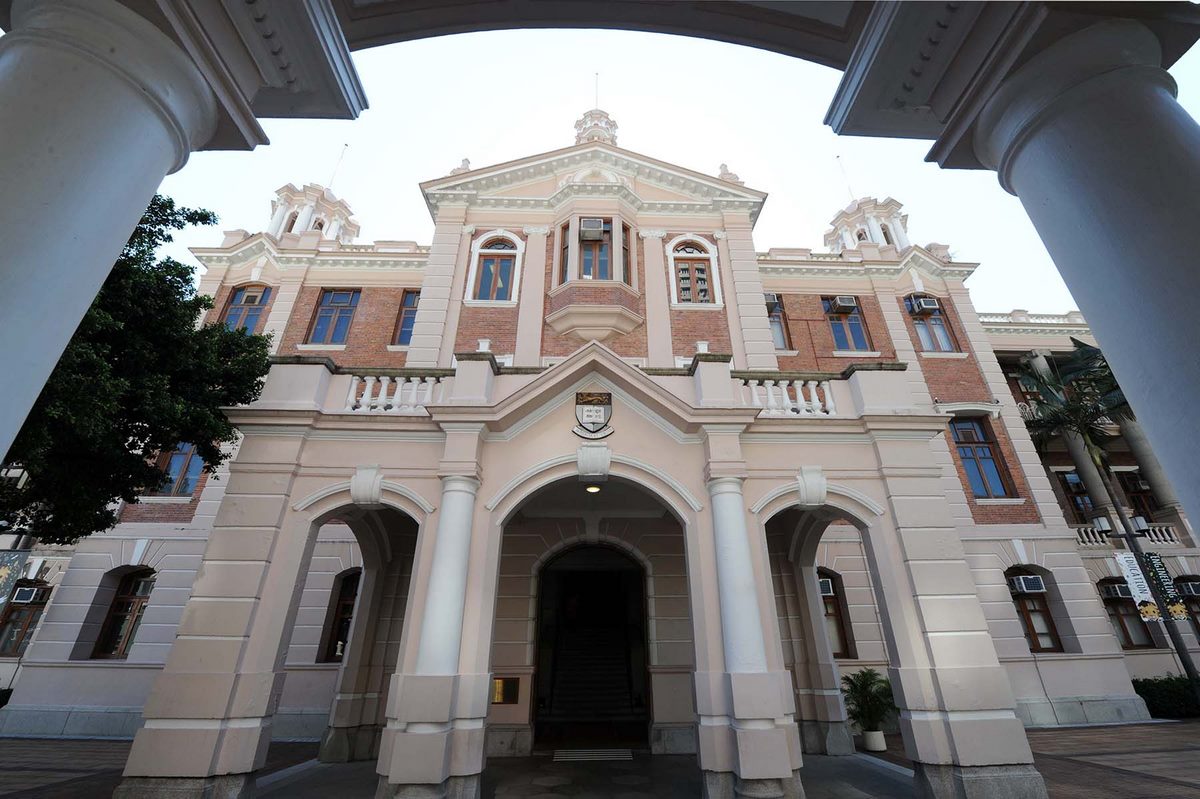
According to a leaked copy of an agreement between the CRCF and HKU from December 2022, Ninestar’s donation was to be deposited into an entrance scholarship fund for mainland Chinese students and offered to those who support the Communist Party of China.
HKFP has reached out to Ninestar Corporation and the CRCF for comment.
At present, there is no statutory definition of “charities” in Hong Kong, nor a charity law or a single regulatory authority. Regulations are built up via case law.
Emails exchanged between university staff show discussion on whether the funds could be swapped to The University of Hong Kong Strategic Development Fund, with the President’s Office as budget holder. The HKU spokesperson told local media that such a transfer was never made.
Requests for comment from the President’s Office went unanswered.
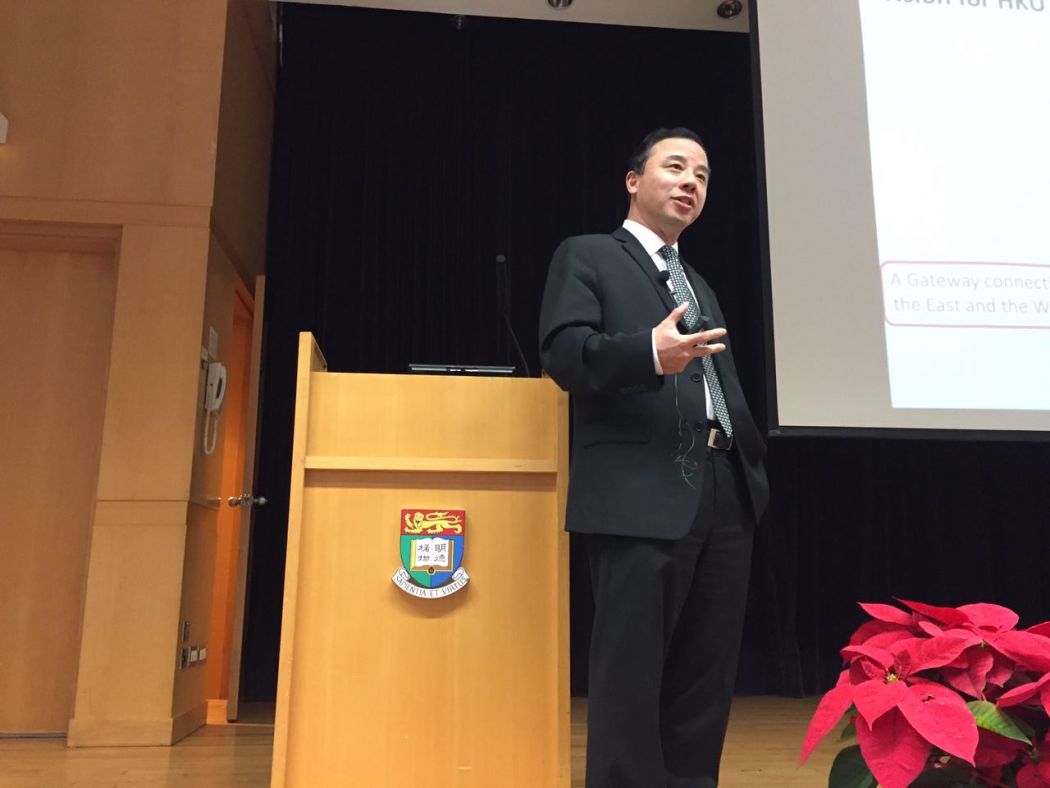
Zhang, a 59 year-old Chinese-American physicist, assumed his role as president and vice-chancellor in 2018. During the protests sparked by a controversial amendment to Hong Kong’s extradition bill in 2019, Zhang drew criticism from students, colleagues and alumni for his response to key incidents. In 2021, Taiwanese legislators and academics called for Zhang to be expelled from Taiwan’s prestigious national academy Academia Sinica, accusing him of helping to suppress academic freedom and democratic values in Hong Kong.
Under Zhang’s leadership, the university has cut ties with its students’ union and removed monuments that commemorated those killed during the Tiananmen crackdown on June 4, 1989, when China’s People’s Liberation Army dispersed student pro-democracy protesters in Beijing.
He was also accused of nepotism when his former colleagues from UC Berkeley in the US were appointed as vice-presidents of HKU in 2020.

In 2021, the HKU Council announced that Zhang’s five-year contract with the university would be renewed early, keeping him on as head of HKU until 2028.
President’s HK$2 million car
Emails and documents sent to HKU Council last month included other allegations of misconduct. Among them, overspending on renovation works for a senior staff common room, and sidestepping the standard tendering process when hiring a US-based recruitment firm to to appoint a vice-president and pro-vice-chancellor of institutional advancement, and a dean of medicine.
Additionally, controversy arose over Zhang’s choice of car to replace a 10-year-old vehicle used by presidents before him.

Emails attached to one of the whistle-blower’s complaints and seen by HKFP showed that, after test driving electric models from BMW and Mercedes, only one car was found to fulfil “user requirement and expectation as well as the image of HKU.”
That vehicle cost over HK$2 million, more than HK$600,000 more than the other one in consideration.
The university told local media outlets, which reported on the HK$2 million BMW in early September, that it was university policy to update the president’s car every seven years.
‘Internal affair’
When asked about his opinions on the saga earlier this month, Chief Executive John Lee said that he was aware of the allegations but they were a matter for HKU management. Lee, as the leader of Hong Kong, is the chancellor of the city’s public universities.
“What is important is that things should be handled in accordance with laid down procedures and any matter should be dealt with in a fair and impartial manner,” Lee told reporters ahead of a meeting with advisory body the Executive Council.
HKU dropped four places from 31st to 35th in the latest Times Higher Education World University Rankings last Wednesday.
Support HKFP | Policies & Ethics | Error/typo? | Contact Us | Newsletter | Transparency & Annual Report | Apps
Help safeguard press freedom & keep HKFP free for all readers by supporting our team

Original reporting on HKFP is backed by our monthly contributors.
Almost 1,000 HKFP Patrons made this coverage possible. Each contributes an average of HK$200/month to support our award-winning original reporting, keeping the city’s only independent English-language outlet free-to-access for all. Three reasons to join us:
- 🔎 Transparent & efficient: As a non-profit, we are externally audited each year, publishing our income/outgoings annually, as the city’s most transparent news outlet.
- 🔒 Accurate & accountable: Our reporting is governed by a strict Ethics Code. We are 100% independent, and not answerable to any tycoon, mainland owners or shareholders. Check out our latest Annual Report, and help support press freedom.
- 💰 It’s fast, secure & easy: We accept most payment methods – cancel anytime, and receive a free tote bag and pen if you contribute HK$150/month or more.
MORE Original Reporting
HKFP has an impartial stance, transparent funding, and balanced coverage guided by an Ethics Code and Corrections Policy.
Support press freedom & help us surpass 1,000 monthly Patrons: 100% independent, governed by an ethics code & not-for-profit.





